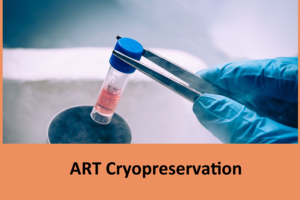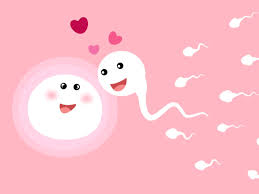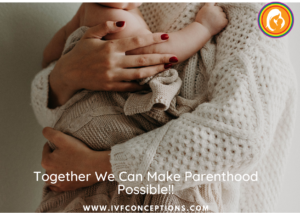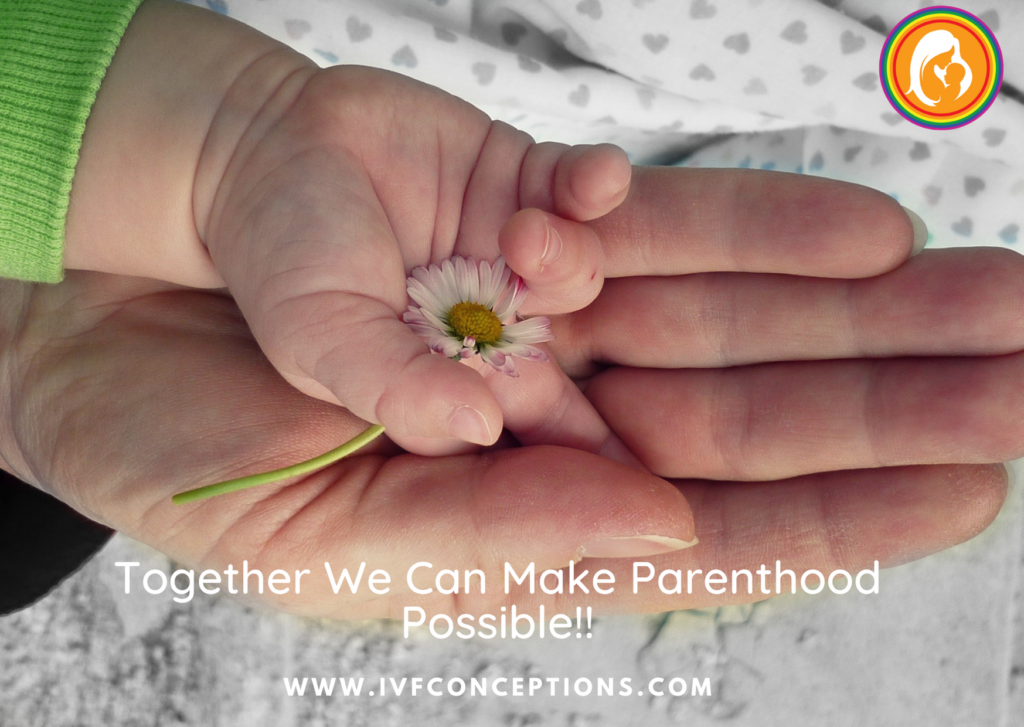What Are Egg Donation Disqualifications- Your Guide to Find Egg Donor

Becoming an egg donor is a selfless and rewarding way for women between the ages of 20 and 28 to assist couples, including infertile couples and LGBT couples, in achieving their dream of having a family. Egg donation is a noble gesture to help childless couples, where a female partner is unable to use her own eggs due to medical or age-related reasons. In this article, we will discuss some common egg donation disqualification factors.
Get in touch for FREE SURROGACY CONSULTING:
Mobile: +91-8800481100 ( WhatsApp, Line, Viber)
Email: neelam@ivfconceptions.com
What Are Egg Donation Disqualifications: A Comprehensive Guide
Egg donation is a generous act that helps many individuals and couples achieve their dreams of parenthood. However, not everyone who wishes to donate eggs is eligible to do so. This comprehensive guide explores the various factors that may disqualify a potential egg donor, ensuring the safety of both donors and recipients.
Lets learn more about egg donation disqualifier:
Understanding Egg Donation
Egg donation is a process where a woman provides her eggs to another person or couple for assisted reproduction. The screening process for egg donors is rigorous to ensure the health and safety of all parties involved.
General Requirements for Egg Donors
Before discussing disqualifications, let’s review the general requirements for egg donors:
|
Requirement |
Typical Criteria |
|
Age |
21-32 years old |
|
BMI |
18-29 |
|
Education |
High school diploma (minimum) |
|
Lifestyle |
Non-smoker, limited alcohol use |
|
Health |
Good physical and mental health |
|
Availability |
Able to commit to the donation process |
These requirements may vary slightly between clinics and agencies.
Medical Disqualifications/egg donation disqualifier:
Certain medical conditions may disqualify a potential egg donor:
- Sexually Transmitted Infections (STIs): Active or recent infections like HIV, hepatitis B or C, syphilis, chlamydia, or gonorrhea.
- Reproductive Disorders: Conditions such as polycystic ovary syndrome (PCOS), endometriosis, or premature ovarian failure.
- Chronic Diseases: Diabetes, lupus, rheumatoid arthritis, or other autoimmune disorders.
- Cancer: Current or past history of cancer, especially reproductive cancers.
- Hormonal Imbalances: Thyroid disorders or other endocrine issues.
- Genetic Disorders: Any known genetic conditions or being a carrier of genetic diseases.
- Blood Disorders: Sickle cell anemia, thalassemia, or hemophilia.
- Neurological Conditions: Epilepsy, multiple sclerosis, or history of stroke.
- Cardiovascular Issues: Heart disease or high blood pressure.
- Reproductive Organ Abnormalities: Uterine fibroids, ovarian cysts, or other structural issues.
 Genetic Disqualifications
Genetic Disqualifications
Genetic screening is a crucial part of the egg donation process. Potential donors may be disqualified if they:
- Are carriers of genetic disorders such as cystic fibrosis, spinal muscular atrophy, or Tay-Sachs disease.
- Have a family history of hereditary diseases like Huntington’s disease or hereditary cancers.
- Have chromosomal abnormalities.
- Carry genes for certain inherited conditions, even if they don’t exhibit symptoms themselves.
Lifestyle Disqualifications
Certain lifestyle factors can lead to disqualification:
- Substance Use: Current or recent use of tobacco, illegal drugs, or excessive alcohol consumption.
- High-Risk Sexual Behavior: Multiple sexual partners or engaging in unprotected sex.
- Body Modifications: Recent tattoos or piercings (due to infection risk).
- Occupation Hazards: Exposure to harmful chemicals or radiation in the workplace.
- Travel History: Recent travel to areas with a high risk of Zika virus or other infectious diseases.
Psychological Disqualifications
Mental health is as important as physical health in egg donation. Disqualifying factors include:
- History of clinical depression, bipolar disorder, or schizophrenia.
- Eating disorders such as anorexia or bulimia.
- Substance abuse disorders.
- Severe anxiety disorders.
- Personality disorders that might interfere with the donation process.
Body Mass Index (BMI) Requirements
BMI is an important factor in egg donation eligibility:
|
BMI Range |
Classification |
Typically Eligible? |
|
Below 18.5 |
Underweight |
No |
|
18.5 – 24.9 |
Normal |
Yes |
|
25 – 29.9 |
Overweight |
Maybe (clinic dependent) |
|
30 and above |
Obese |
No |
A BMI outside the acceptable range can affect hormone levels and egg quality.
Age-Related Disqualifications
Age is a critical factor in egg donation:
- Most clinics accept donors between 21 and 32 years old.
- Women under 21 may not be emotionally ready for the process.
- Women over 32 may have decreased egg quality and quantity.
Some clinics may have slightly different age ranges, but these are the most common guidelines.
Reproductive History Disqualifications
A donor’s reproductive history is carefully evaluated. Disqualifying factors may include:
- Current pregnancy or breastfeeding.
- Recent childbirth (within the last 6 months).
- History of complicated pregnancies or births.
- Multiple miscarriages.
- Previous ovarian surgery.
- History of premature menopause in the family.
The Screening Process for Egg Donor
The egg donor screening process is thorough and involves multiple steps:
- Initial Application: Basic personal and medical history.
- In-Depth Questionnaire: Detailed family, medical, and genetic history.
- Physical Examination: Comprehensive health check.
- Genetic Screening: Tests for carrier status of genetic diseases.
- Psychological Evaluation: Assessment of mental health and readiness.
- Infectious Disease Testing: Screening for STIs and other infections.
- Ovarian Reserve Testing: Evaluation of egg quantity and quality.
- Drug and Nicotine Screening: Tests for substance use.
This rigorous process ensures the health and safety of both donors and recipients.
Becoming an egg donor for such childless couples is a kind and compassionate way of growing their families. Egg donors earn money to help childless couples and LGBT couples achieve their vision of having a family by giving their time, commitment, and devotion.
Unfortunately, not all women are eligible for the egg donation process. The egg donation requirements are designed to find healthy donors and embryos. Eggs should be fertile. It is an essential quality along with other non-medical criteria. Not all women meet the other requirements in the age group.
Eligibility for a woman to participate in an egg donor process:
Several main requirements need to be fulfilled to become an egg donor –
- The BMI of the donor should be under 28.
- The donor should be of age between 21 to 28 years of age.
- Emotional and physical health
- Have monthly periods regularly
- Not shot at Depo-Provera at the moment
- No abnormality or reproductive disorders
- There should be non-nicotine, non-smokers, and on non-medicaments.
- The Nexplanom arm implant is not currently used
- Want to respond within 24 hours to the communication
- Willing to invest 6 months
 What are the factors for egg donation disqualifications?
What are the factors for egg donation disqualifications?
#1. Problems in menstrual cycles
A potential fertility problem could occur in an irregular period. Women with long, short, heavy, or severe painful irregular periods may not qualify to receive an egg donor. These symptoms may be indicative of a fundamental health concern, such as endometriosis or PCOS. These circumstances may also prevent a woman from giving her eggs through a bank or agency.
#2. Health concerns
egg donors need to have strong overall health, as noted above. Women who use tobacco products such as cigarettes or who receive other medicines with certain health conditions will not be eligible for most donations. Still, the egg donor needs to be aware of egg donation risks before applying for it.
#3. Reliability
Egg donors need to be confident – they need to follow appointments and be proactive toward the responsibility of the egg donation process. Missing appointments, delays, and a lack of general commitment will result in a donor being removed from the donor program.
#4. Choice of contraception
Egg donor programs may exclude certain types of contraception. Examples include an implant for birth control or other injections for birth control. Potential donors should speak with the organization with which they apply to become an egg donor about their birth control and the organization’s assurance if there are any issues.
#5. Genetic conditions
The genetic profile of an egg donor is checked as part of its operation. An inherited genetic disorder will very likely serve as a point of disqualification from a donor program.
If you would like to become an egg donor, please read more about the process of donating eggs before you prepare to be.
Read more about egg donors:
Pros and cons of egg donations
All your need to know about the egg donation process
Some egg donor-related questions:
#1. Can you reapply as an egg donor?
You can certainly apply again if you have been a previous donor who has received the approved donation from the fertility clinic. If you had a successful previous cycle and confirmed pregnancy the odds of becoming an egg donation are higher and you get paid handsomely for it. In any case, each cycle is different, so your fertility expert would like to review all your medical reports before taking you again.
#2. Is contraception important?
Applicants are asked if they use contraception. For a variety of reasons, this is significant.
- The risk of sexually transmitted infections is higher for donors who donate without using contraceptives (or have unprotected sex. Checking STDs is part of a donor’s medical exam and it is important to keep you safe from STDs.
- A donor is extremely fertile while taking the necessary injectable medicines before recovery. The drug induces more follicles than the body normally would produce, which means the risk of multiple pregnancies is much higher. So, one must avoid sexual intercourse.
- Donor applicants with a contraceptive method that does not permit regular monthly menstruation are not eligible. Some drugs, IUDs, and implants alter hormones, that can adversely affect the process. A candidate currently not under birth control is instructed to take them during the donor process as they become fertile during the process.
#3. Cost of using an egg donor
Fresh eggs cost more (about twice the average price) than frozen eggs. You may have tens of thousands of costs for fresh eggs, with an estimated cost of egg donor compensation from $8,000 to $20,000. All other charges must then be added: all hormonal shots, ultrasound, blood work, doctor visits, donor travel fees, legal charges, and so on.
And, to achieve pregnancy, if you need more than one IVF period, the cost will increase. Furthermore, you might see a total cost between $35,000 and $65,000.
#4. Does insurance cover the cost of an egg donor?
Donor eggs usually are not insured, unfortunately. In some cases, IVF cost is covered under insurance, but not always.
 Conclusion
Conclusion
Egg donation offers hope and creates life-changing opportunities for intended parents. However, not every woman qualifies to become an egg donor, as the selection process aims to ensure the healthiest and most suitable candidates are chosen.
Opting for egg donation is a serious commitment for both egg donors and intended parents. A lot of preparation emotionally, mentally, and medically is needed on the part of the egg donors. But not all girls can donate due to social or medical reasons as fertility specialists and egg donor agencies do have strict criteria to choose the best egg donor for you.
She if you are willing to become an egg donor, you need to be qualified to become an egg donor. The above reasons disqualify you from donating eggs.
If you’d like to learn more about IVF, Egg Donation, or surrogacy services globally, check out the rest of our website: IVF Conceptions. We offer legally secure and affordable surrogacy consulting services for FREE.
Get in touch for FREE SURROGACY CONSULTING:
Mobile: +91-8800481100 ( WhatsApp, Line, Viber)
Email: neelam@ivfconceptions.com
FAQs Egg Donation Disqualifications
What are common disqualifications for egg donation?
– Health concerns
– Inheritable genetic disorders
– Contraception use
– Menstrual irregularities
– Schedule constraints
– Recent travel to Zika-infected areas
Can health conditions disqualify someone from donating eggs?
– Yes, certain health conditions can disqualify someone from donating eggs.
Are there age restrictions for egg donors?
– Yes, there are age restrictions. Generally, egg donors are between 19 and 29 years old, but some clinics may accept donors up to age 34.
How long do disqualifications from egg donation last?
– Disqualifications may vary depending on the reason. For example, certain medical conditions might be reevaluated after treatment, but genetic conditions or lifestyle factors might be permanent disqualifications.
Can previous medical history affect egg donation eligibility?
– Yes, previous medical history can affect egg donation eligibility, especially if it includes genetic disorders, sexually transmitted infections (STIs), or certain medications that may impact fertility.
What are the psychological disqualifications for egg donation?
– Severe mental health conditions, ongoing treatment, emotional instability, or lack of a support system can lead to psychological disqualifications for egg donation.
Do certain medications disqualify someone from donating eggs?
– Yes, some medications, such as Depo-Provera injections or contraceptive implants, may disqualify someone from donating eggs.
Can lifestyle factors impact egg donation eligibility?
– Yes, lifestyle factors like smoking, drug use, excessive alcohol consumption, and unhealthy body mass index (BMI) can impact egg donation eligibility.
What happens if someone is disqualified from donating eggs?
– If disqualified, the individual may not be able to participate in the egg donation process. However, the possibility of reapplying in the future depends on the reason for disqualification and the policies of the fertility clinic or agency.

 Genetic Disqualifications
Genetic Disqualifications What are the factors for egg donation disqualifications?
What are the factors for egg donation disqualifications?
 Conclusion
Conclusion
